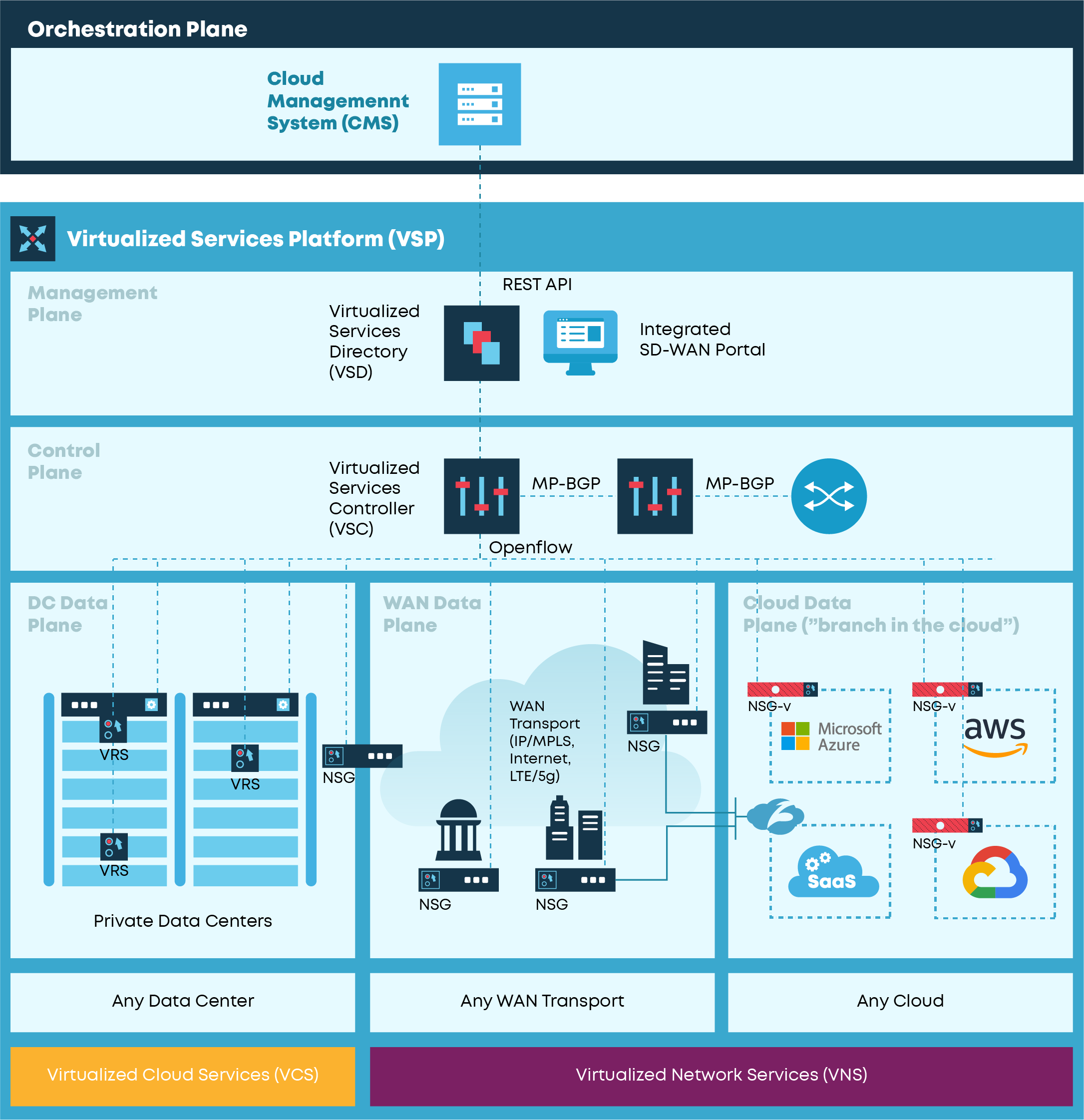多雲挑戰
業務應用和工作負載變化,網絡邊界擴展,需端到端的SD-WAN解決方案和多雲策略。


業務應用和工作負載變化,網絡邊界擴展,需端到端的SD-WAN解決方案和多雲策略。

雲自動化時代擴展需求巨大,需要為大規模構建的SD-WAN解決方案。

雲架構時代傳統安全措施不足,需新的軟件定義安全措施。

專用分支設備蔓延難管理,企業轉向以 VNF 形式託管,需能安全管理連接的 SD-WAN 方案

企業需通過通用框架接納更多遠程工作者和移動用戶。


由FirstLink虛擬化服務平臺(VSP)所支持的資料中心和雲網絡框架,能够使通信服務提供者(CSP)及其電信雲部署,以及大型企業資料中心客戶實現虛擬網絡的自動化配寘、管理和優化。 它包括為租戶隔離以及對單個應用和工作負載的存取控制提供安全服務。
VCS是針對所有虛擬化和非虛擬化服務器及網絡資源的非破壞性軟件定義網絡(SDN)覆蓋。 它對底層物理基礎設施呈透明狀態,並提供一個無需專門硬體的完整雲網絡框架。 VCS可以部署在包括Docker容器、多管理程式虛擬機器(VM)或裸金屬服務器在內的任何混合環境中。
通過支持開源產品和工具以及任何混合環境(容器、VM 和裸金屬)减少集成和相容性問題。
在整個雲中以智慧、一致和可證明的管道應用精細的安全性原則。

以滿足5G和物聯網即將到來的大規模需求以及低延遲要求。

通過對網絡的各個方面進行自動化和優化,讓網絡如同計算資源本身一樣具有動態性。


FirstLink Virtualized Service Platform (VSP) is the common platform where both Virtualized Cloud Services (VCS) and Virtualized Network Services (VNS) are offered. VCS is FirstLink data center SDN solution. VNS is Nuage Network’s SD-WAN 2.0 solution.

The Network Services Gateway (NSG) constitutes the network-forwarding plane for VNS. The NSG encapsulates data traffic, enforcing Layer 2 to Layer 4 network policies as well as establishing Layer 2 or Layer 3 overlay VPNs as defined by the VSD. The NSG family also supports built-in Wi-Fi access as well as LTE uplink as well as other inherent built-in advanced services.

The Virtualized Services Directory (VSD) is a programmable policy and analytics engine. It provides a flexible network policy framework that enables network administration teams to define, apply, and enforce business policies across the network service in a user-friendly manner. The VSD also offers a multi-tenant enterprise portal that enterprise customers can use to visualize, configure, maintain their network.

The NSG–v is the virtualized software image of the VSG and can be deployed in any x86-based virtualized environment and is the software that is deployed in public clouds to extend SD-WAN 2.0 visibility and control.

The Virtualized Services Controller (VSC) is the industry’s most powerful SDN controller. It functions as a centralized and robust network control plane for the network services, maintaining a full view of the network and service topologies. Through the VSC, virtual routing and switching constructs are established to program the network-forwarding plane.

Virtual Routing & Switching (VRS) is a software agent that resides in a virtualized server environment of a data center that serves as a virtual endpoint for network services. Through the VRS, changes in the compute environment are immediately detected, triggering instantaneous policy-based responses in network connectivity to meet the needs of applications.